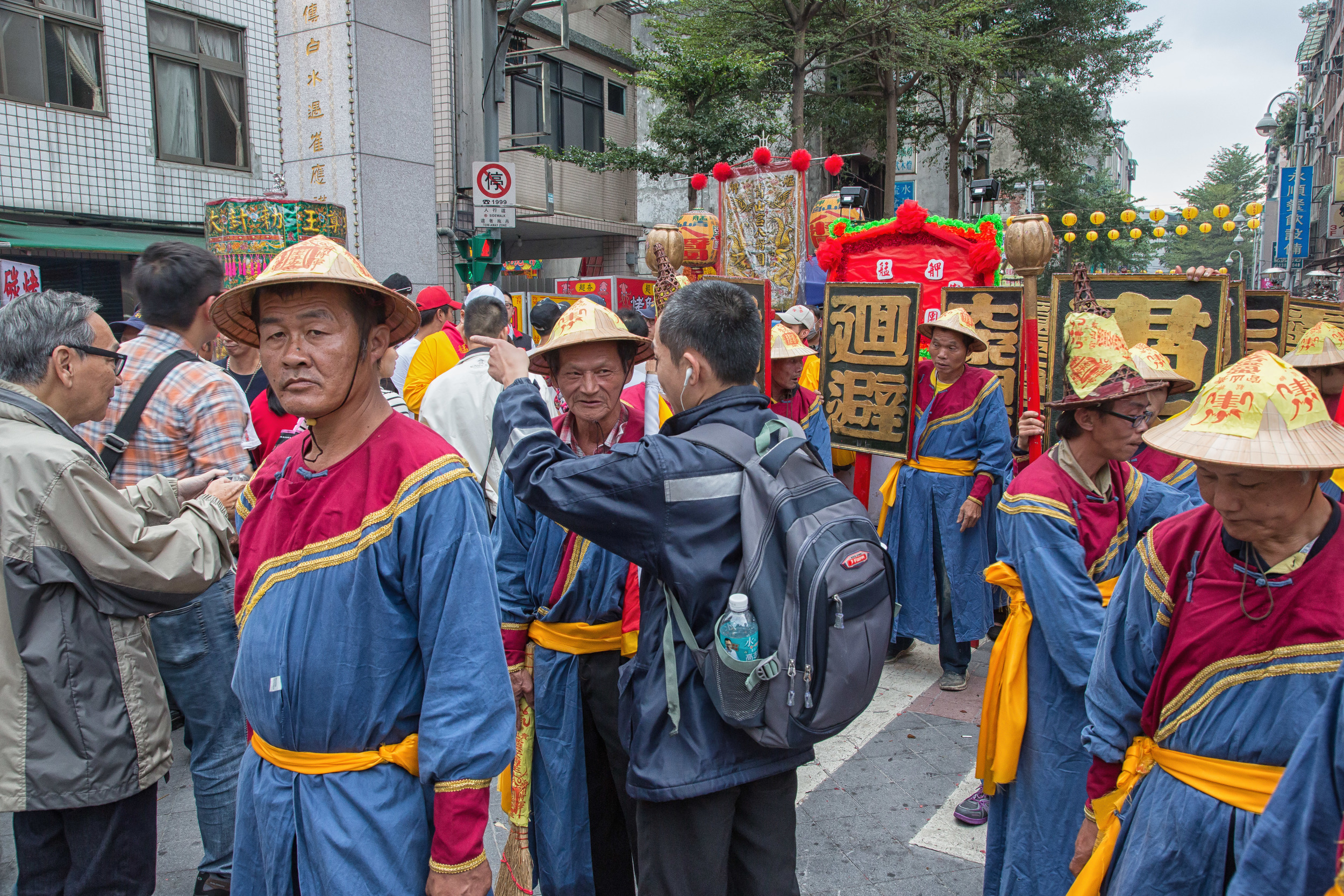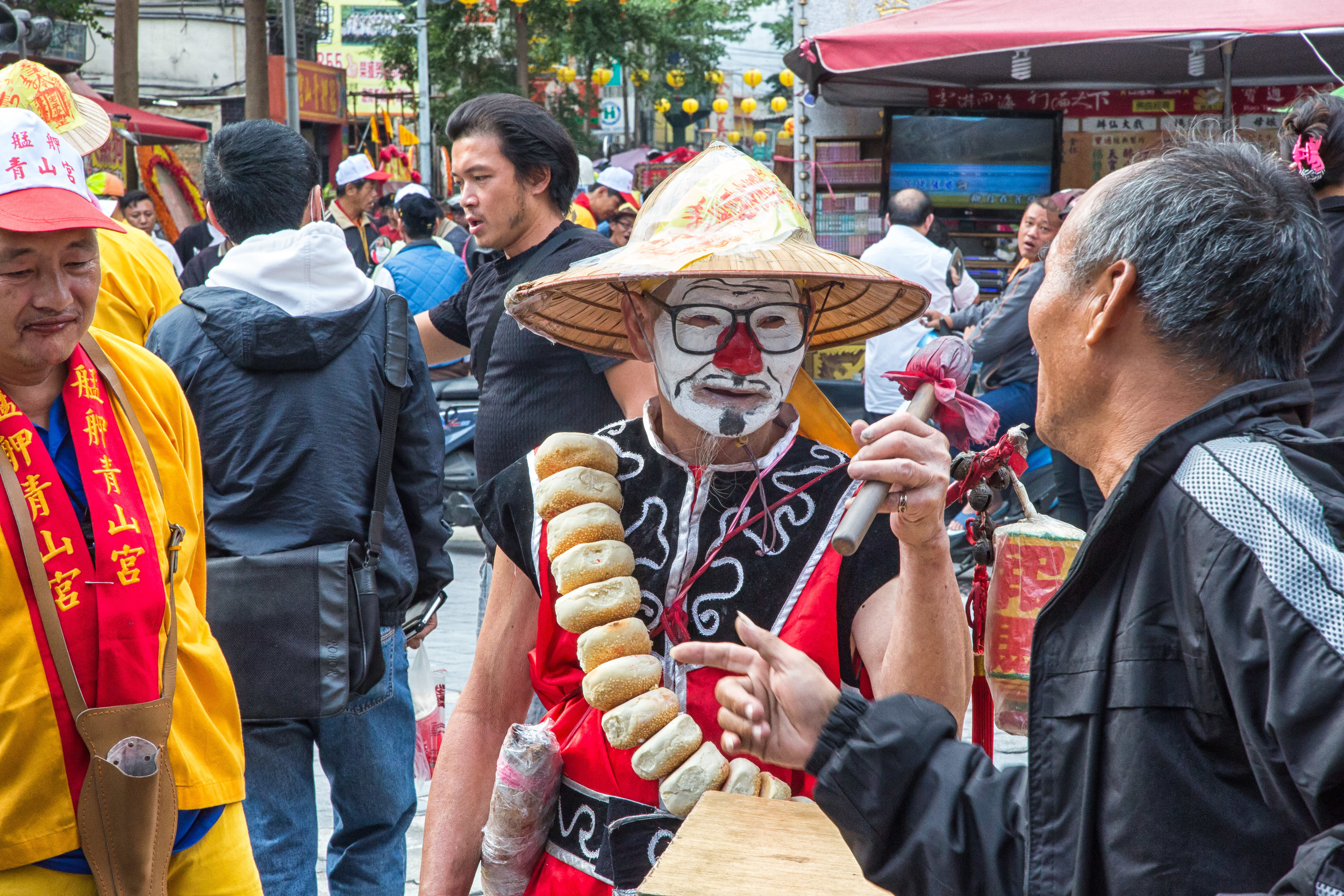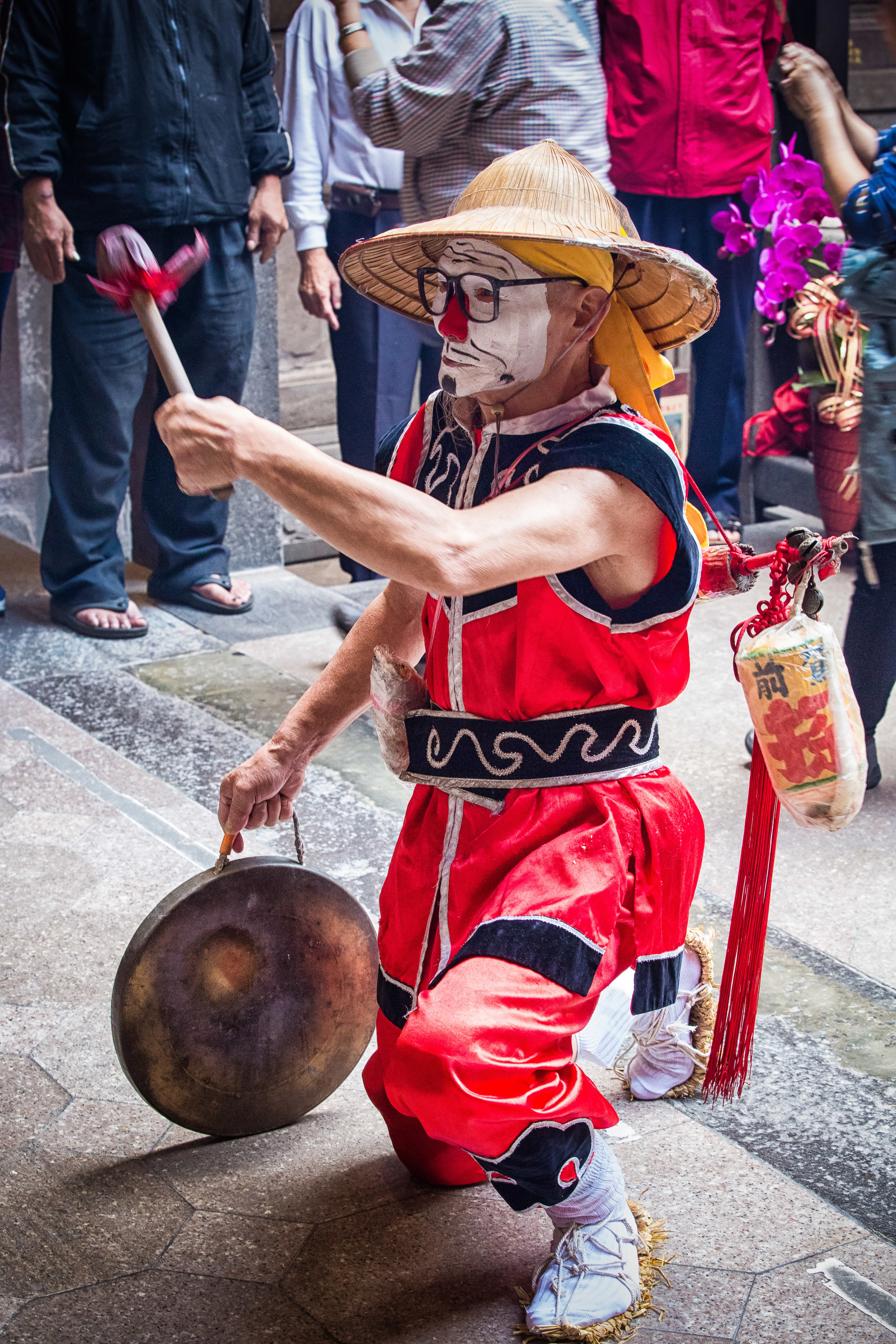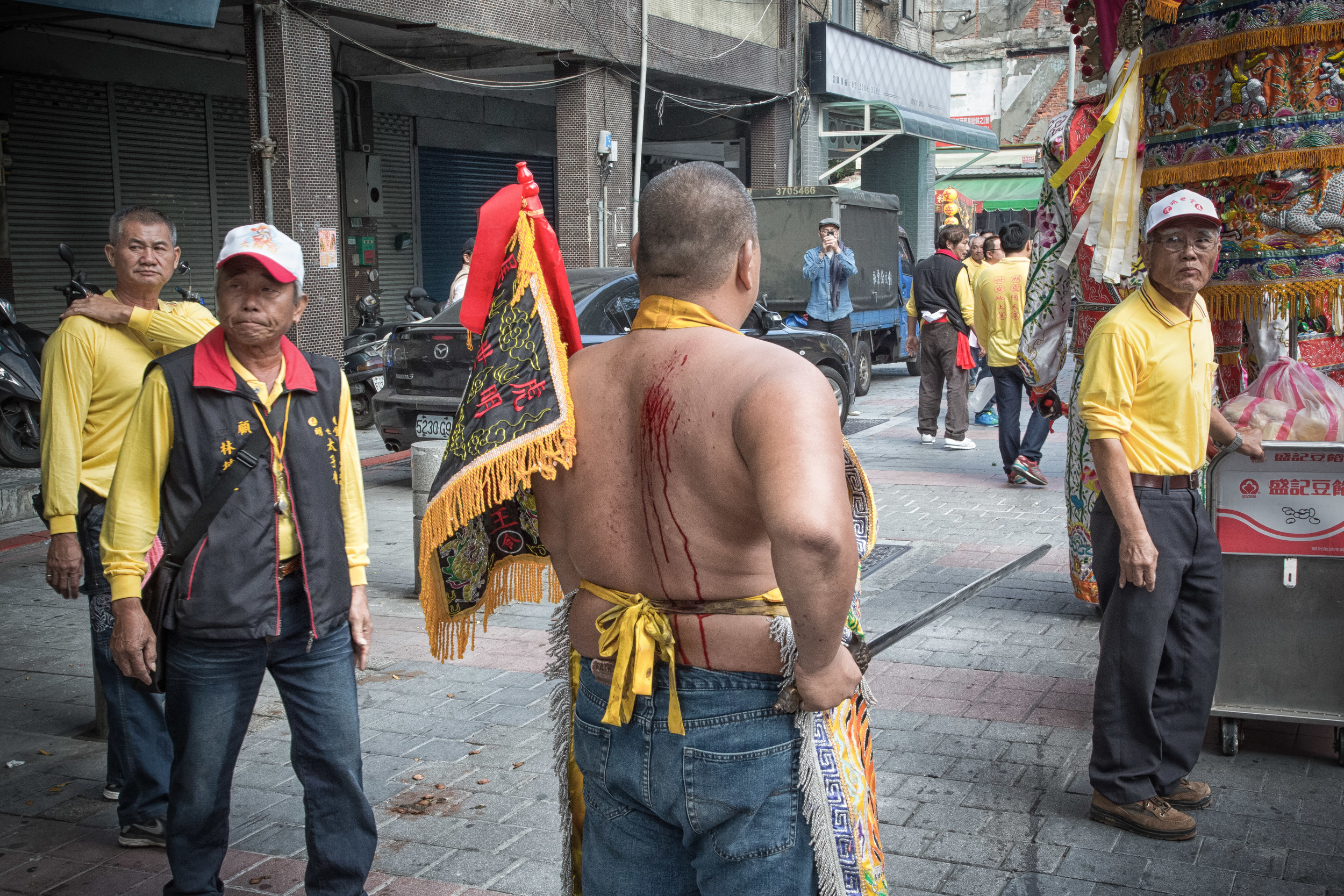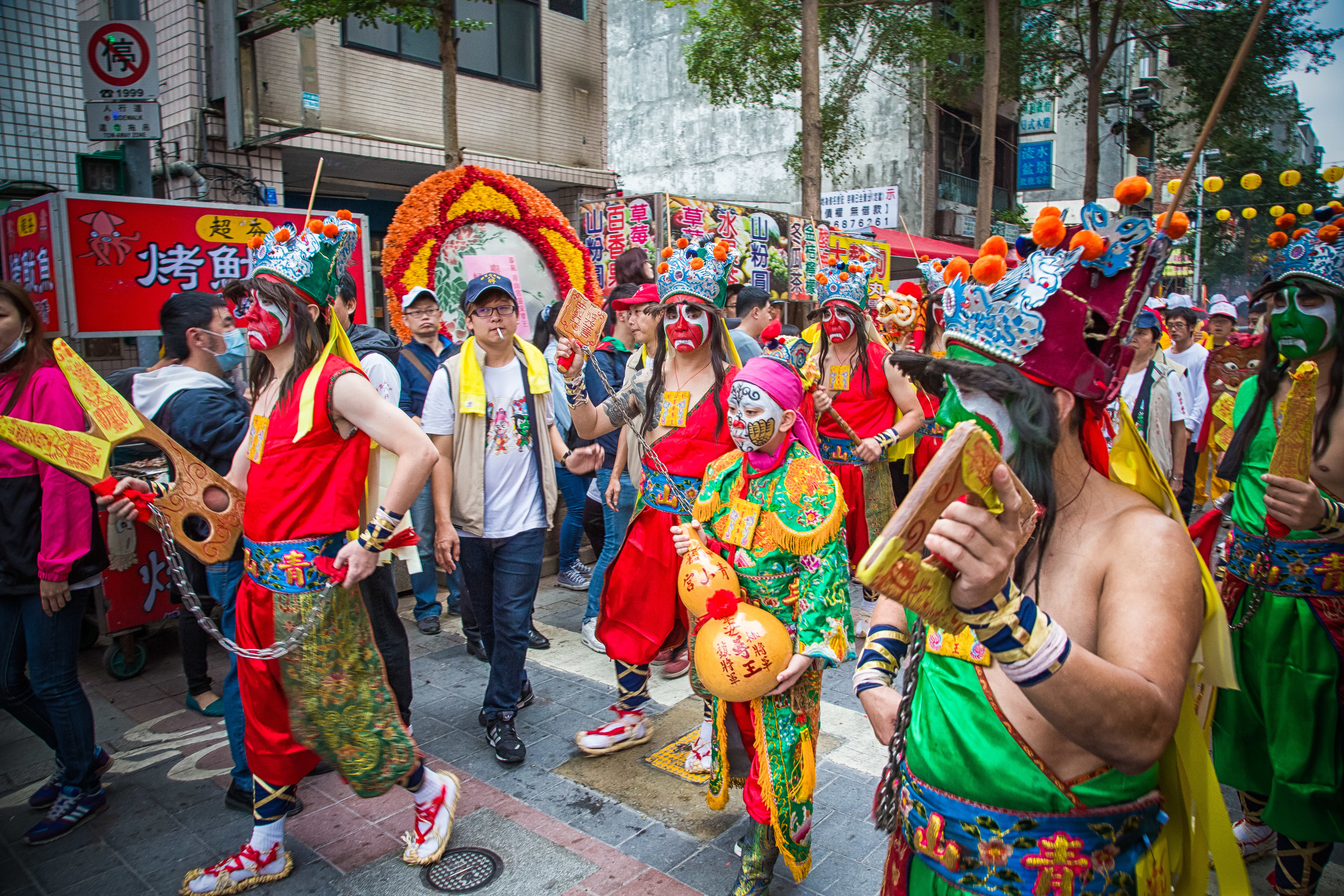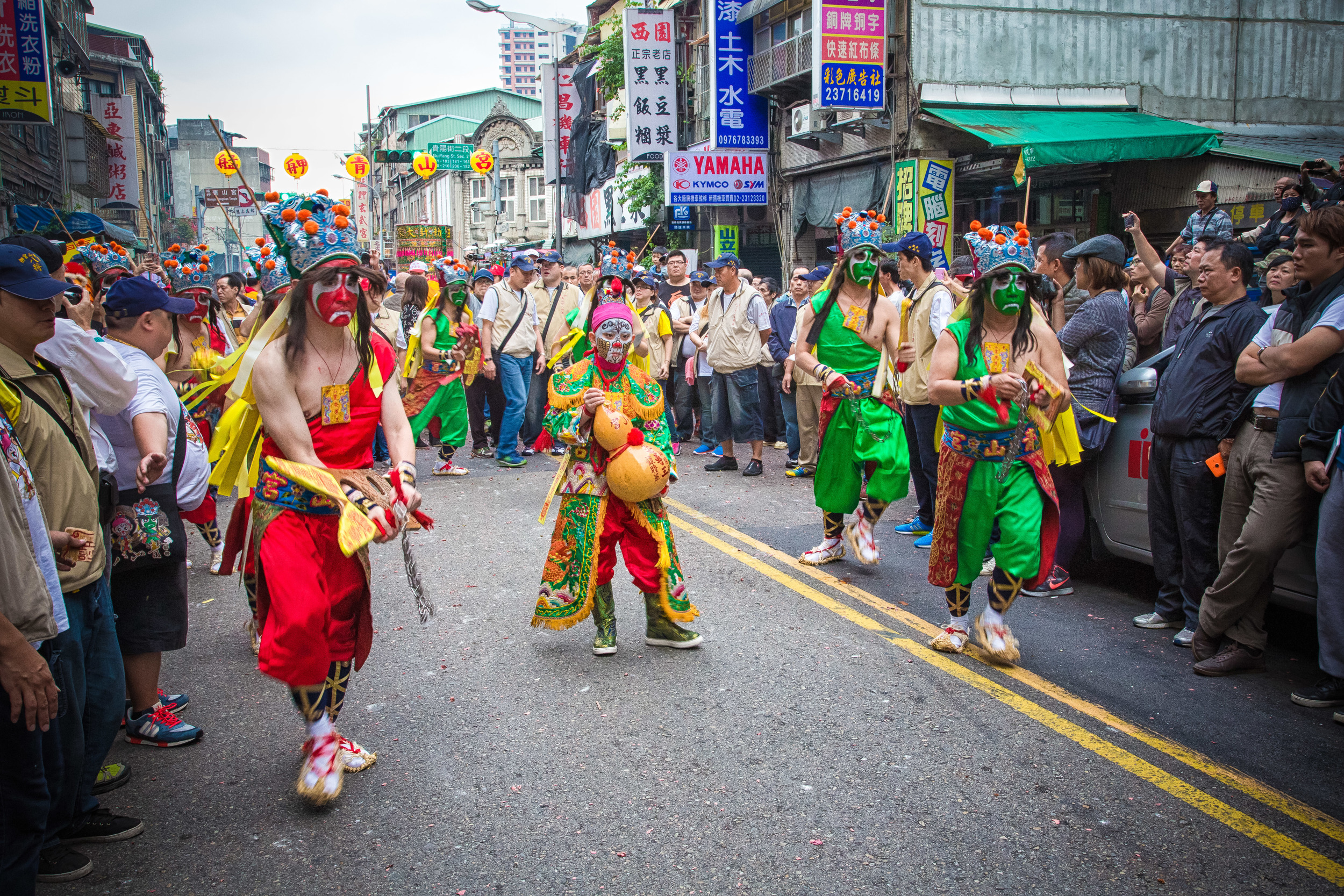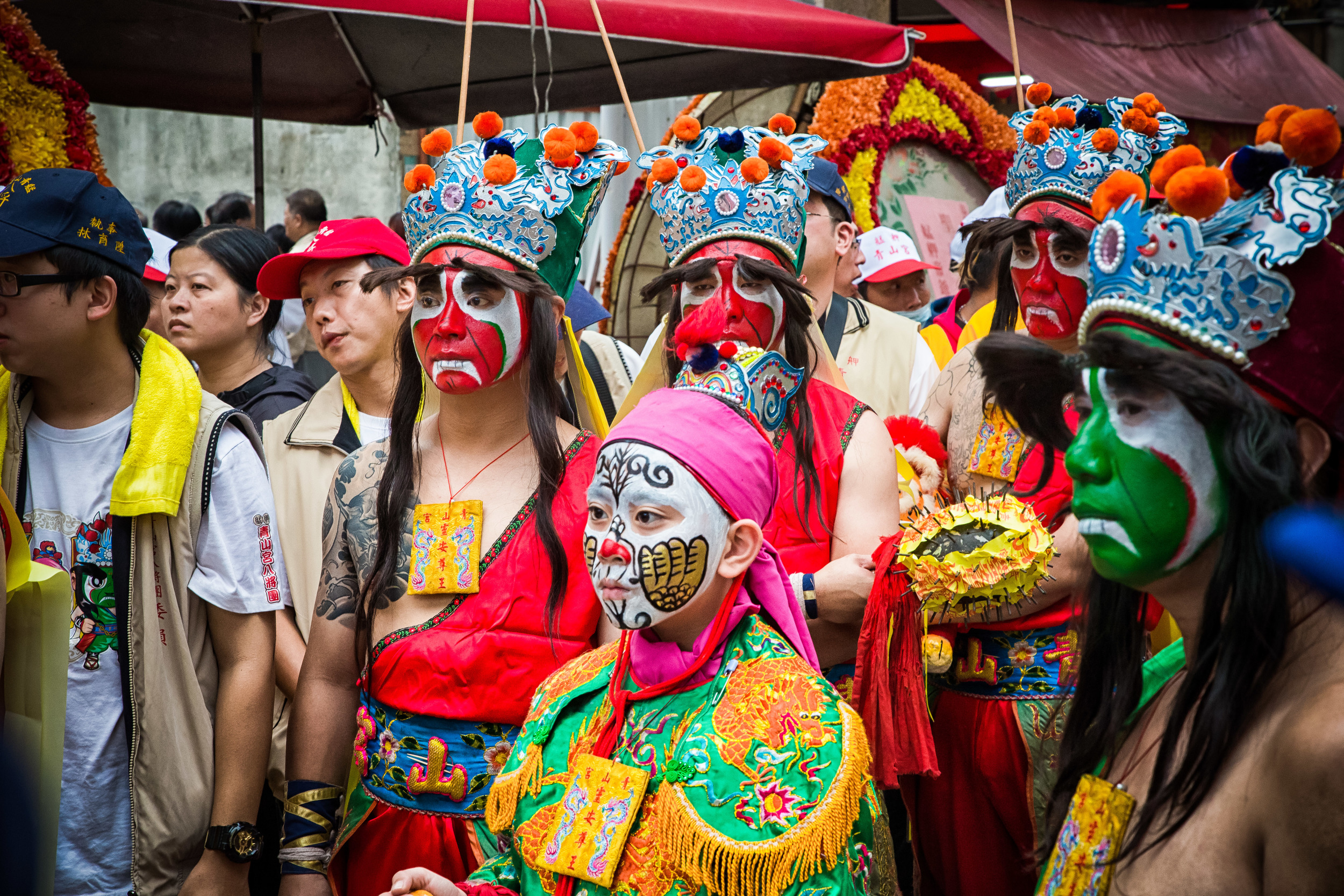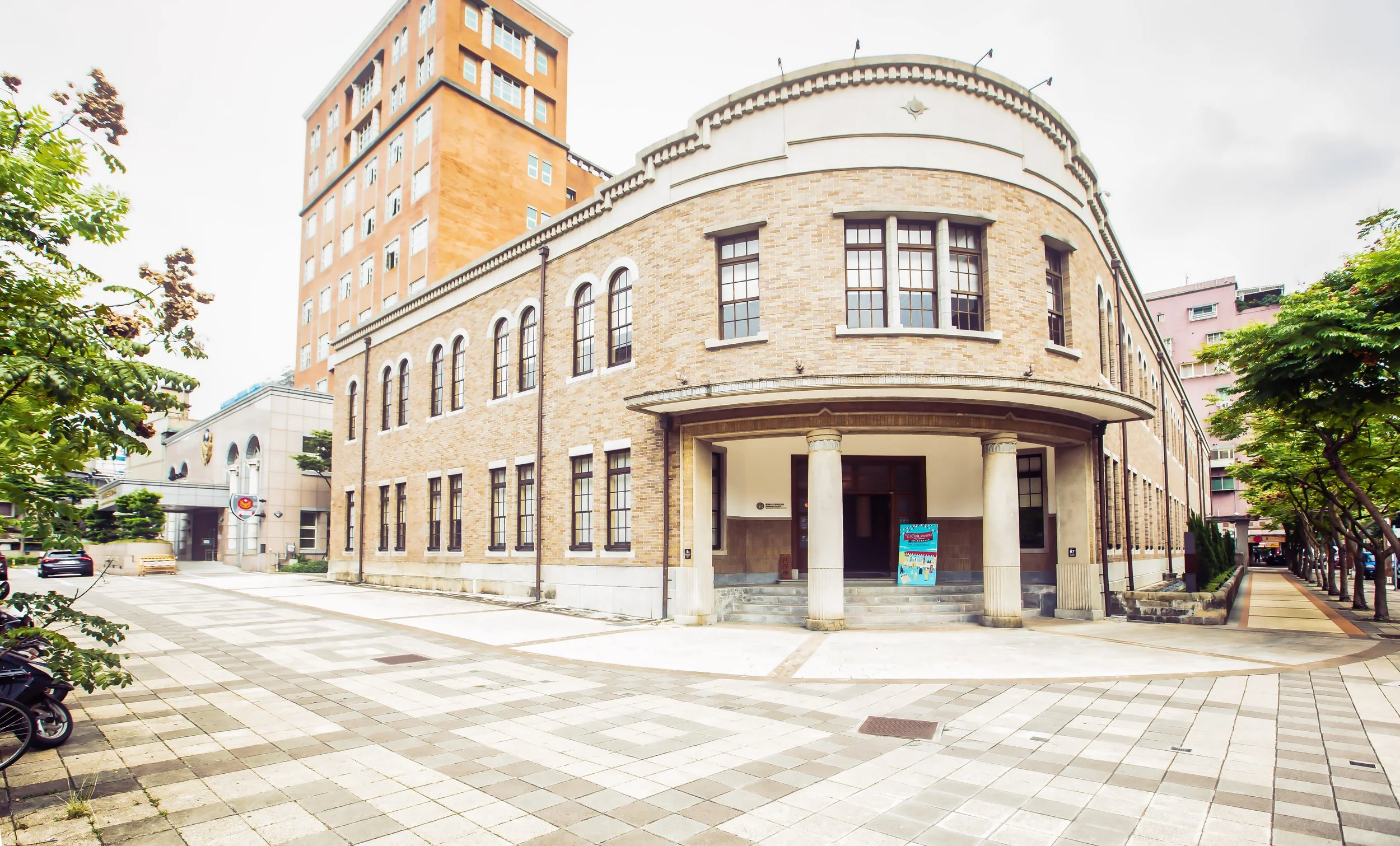The Qingshan King Ritual (青山靈安尊王) is an annual three-day temple festival held in the Monga district (艋舺/萬華) of Taipei and is used to celebrate the birth of the Taoist god Lin-An Chun Wang (靈安尊王) or the Qingshan King (青山王)
The Qingshan King is an important deity hailing from the Quanzhou (泉州) area of Fujian province in China, an area where a lot of the first Chinese immigrants of Taiwan originated hundreds of years ago.
Legend has it that when the Hokkien immigrants first arrived in Taiwan, there was a lot of sickness due to a plague that was ravaging the area. The Qingshan Temple (青山宮) was one of the few places unaffected and soon became a popular place for the pious residents of the area to pray for their continued health and safety.
The festival is held between October 20th-22nd (on the Lunar Calendar) and during the festival the temple followers parade the temple god around the district with his troops, oracles and generals to inspect the homes and businesses to eliminate evil spirits and suffering and to bring good luck to the locals.
The festival is one of the largest and liveliest temple festivals in Taipei and the entire Monga district looks forward to this special time of the year where residents will often celebrate into the late hours of the night.
I’m going to end 2015 with several posts dedicated to the Monga district of Taipei. This post will be split into two parts which will be followed by posts about the Qingshan Temple (青山宮), Longshan Temple (龍山寺) and then several street photography posts about the people of Monga.
I’m splitting this post up in an attempt to better explain the different aspects of the festival as well as to offer more context in terms of photos. I had a great time shooting this festival (even though I could only make it to one day of festivities) and I’ve had a lot of fun over the past few weeks hanging out in Monga which is truly one of Taipei’s most important districts in terms of history, culture and religion.
5. The Secret Night Patrol (暗訪)
The "Secret Night Patrol" despite its name isn't a very well-kept secret - Its very loud, exciting and creates a lot of commotion throughout Monga during the three days of celebrations. The "patrol" refers to the parade started by the Messenger (報馬仔), the Eight Generals (八家將), the Infernal Generals (大仙尪仔), the Qingshan King and the followers of the temple itself who dress up in robes and march throughout the district.
There are people who are responsible for blowing giant horns (角隊等) and gongs (馬頭鑼) and there are also people carrying lanterns (頭燈) who light the way for the gods who are parading their way through the city. Firecrackers, flares and fireworks are lit non-stop and it seems like there are explosions and smoke wherever the parade is going.
The point of all of this commotion is to scare away ghosts or evil spirits which may be lurking throughout the district. Its important for members of the community to keep their doors closed at all times as they wouldn't want a ghost hiding in their house or place of business.
There is a lot of preparation that goes into becoming a member of the Secret Night Patrol and it is also a great honour for followers of the Qingshan King to take part in the parade on his behalf.
6. The Holy Generals (神將/大仙尪仔)
The Holy Generals are probably my favourite part of the parade - They are really cool looking and standing at around three meters tall they tower over all the people in the crowd as they walk past. The generals are split into two groups, one that will lead the parade and another that will escort the Qingshan King. After the Messenger checks to make sure everything is okay, the first group of Holy Generals leaves the temple and parades around the city. The King comes at the end and is escorted by two of the most famous of the generals named Qi Ye (七爺) and Ba Ye (八爺)
The generals serve as messengers from the netherworld and their job is to patrol the streets as netherworld-police arresting bad spirits and judging them appropriately. In life they were famous generals who became agents of god after their death. The generals are generally led by a short general and walk together in groups. Each general has a different coloured face and clothes
It is quite common to see people in these types of costumes parading around during Taiwan's temple festivals, so if you can't make it to the Qingshan King Festival you will still have many chances to see them!
7. The Qingshan King (青山王)
The statue of the Qingshan King leaving the temple is more or less the grand finale of the parade The statue which is enclosed in the main shrine of the temple year round is placed in a sedan chair and follows the parade throughout Monga.
The king is followed by his bodyguards, members of the Holy Generals and when he comes around its best to have a set of ear plugs as there are horns blowing, gongs beating and firecrackers exploding non-stop. The point of all the noise is to try to convince the king to stay longer which is sign of good luck.
When the parade is over the king returns to the temple and several different rituals are performed to see when is the proper time to return the king to his shrine. I visited the temple a second time a week after the parade finished and the king was still yet to be put back into his shine which meant that it was a good omen for the people of Monga.
The Qingshan King Festival is a really cool event and I wish I would have been available to take part in all three days of the festivities. The temple is quite lively and the people I encountered were really friendly and more than willing to help me learn about the different aspects of the festival. This was my first time taking part in the parade, but I don't think it will be my last time.
I enjoyed almost every aspect of the parade (except for watching the Spirit Medium inflicting some major pain upon himself.) The next festival that I'll be taking part in is the City God Festival which is coming up in the next month or so. My next post will be about Qingshan Temple which will be followed up with further posts from Monga - I hope you enjoyed the shots and the information I provided. If you have any questions, comments or corrections don't be shy!
Gallery / Flickr (High Res Shots)
Click the Flickr link above to view all of the shots from the festival in one place.




